American families consider $1.5m Noah’s Ark-style flight to get pets home from Australia
Americans who were forced to leave Australia after COVID-19 claimed their jobs and visas could fork out $1.5 million for a Noah’s Ark-style charter flight to get their pets home.
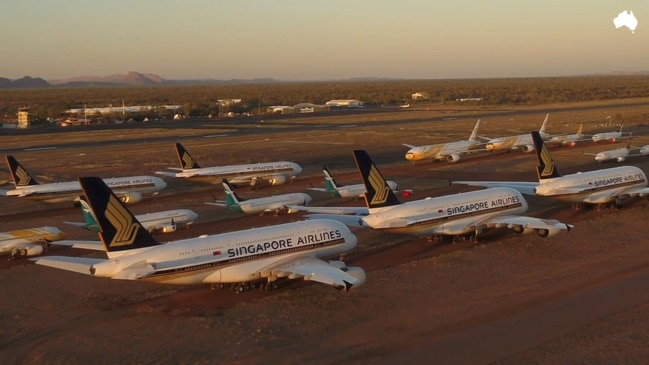
Coronavirus
Don't miss out on the headlines from Coronavirus. Followed categories will be added to My News.
- Airlines, travel agents slapped with class action
- Why you should refuse credit if your travel plans fall through
A Noah’s Ark-style flight from Australia to the US is being organised by pet owners desperate to get their cats and dogs home during the COVID-19 pandemic.
The cost of the Boeing 747 private charter could exceed $US1 million ($A1.53 million) with pet owners and other passengers on the flight splitting the cost.
Heartbroken families, including Americans who were working in Australia but suddenly lost their jobs and visas when COVID-19 hit, were faced with the dilemma of not only packing up and moving back to the US but scrambling to get their pets home.
Airlines have shut down or substantially cut the number of flights from Australia to the US for human passengers and the pet owners say there are no commercial options for pets.
Families were forced to leave their pets in Australia and fly to the US or stay in Australia and hope a flight opens up.
“It is heartbreaking for our family, especially the children,” Kirsten Brooks, a mother of four children aged under 12, said on Sunday from her home in Texas.
The Brooks family lived in Darwin for three years and adopted a mixed breed dog, Tex, when he was a puppy.
“He really helped my kids adjust to living in Australia and missing their friends,” Ms Brooks said.
“He slept with one of them every night.” The family planned to fly to Texas in mid-May, but left last month when the pandemic began shutting down flights and their employer encouraged them to leave.
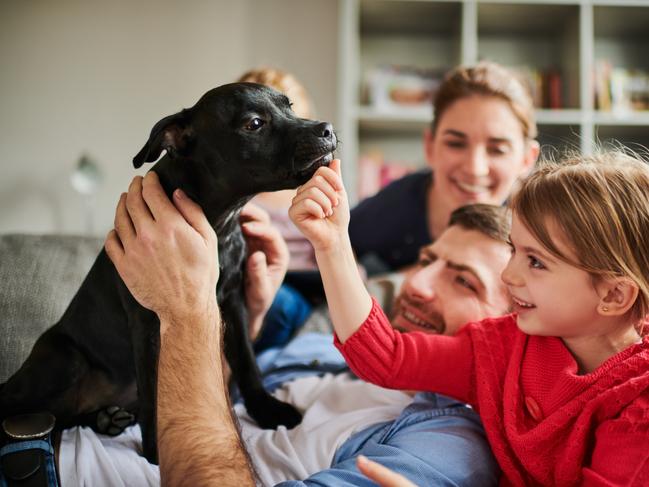
Tex is well cared for by a foster family in Darwin but the Brooks fear it could be October or next year before flights for pets are opened back up.
An “Americans With Pets Stuck in Australia” Facebook page was set up by US architect Justin Kearnan, who along with his fiancee Brenna Jewitt, were frustrated with attempts to get their Great Dane, Sundae, back to the US on a commercial flight.
Kearnan reached out to Brisbane-based Monarc Global.
They are hoping to charter a Boeing 747, but need at least 300 to 400 people on the flight to book seats to keep costs down to around $US2500 to $US5500 ($A3825 to $A8400) each.
The cats and dogs may fly in the cabin with passengers.
Rodger and Brett Cambria moved from California to Melbourne 18 months ago with their five cats, including Queso, a three-legged ginger they saved from being euthanised.
Ms Cambria quit her job in early April just as the lockdown was starting and flights were being cancelled.
“We’ve been ready to return to the US for over a month, but don’t want to leave our animals behind and don’t want to place them in a kennel for an indeterminate amount of time,” Mr Cambria said.
“So essentially, we are stuck here with no jobs and a sponsored work visa that is ticking down to its expiration date.” Another American, Dylan Whitehead, lost his insurance industry job in Melbourne in March, returned to the US to find work but as the virus spread he had “a few extremely stressful weeks” attempting to get his wife, children and Annie, their beloved Basset Fauve de Bretagne, home.
His family made it, but a hold was placed on Annie and she is being cared for by friends in Melbourne.
Laura Read, an American living in Melbourne with her dogs Jet and Panda, was made redundant as COVID-19 rocked the economy.
“This means my visa expires 60 days after my last pay cheque and I must go back to the US,” she said.
“The problem is I will not leave without my pets, they are my family.”
The stranded include Australian Emma Chiu who was set to fly to New York with her cat Milo and reunite with her fiance, a member of the US Navy.
“When I contacted the US consulate here they said unfortunately they couldn’t help since pets aren’t considered a citizen,” Ms Chiu said.
“That was heartbreaking since pets are just like family and I can say my cat has been my best friend, especially during this pandemic.”
QANTAS ANNOUNCES NEW FLIGHTS
Australians in the US frantic about getting their pets home during the coronavirus pandemic have been thrown a lifeline with Qantas announcing a limited number of Los Angeles to Melbourne flights.
Expats moving home have been forced to leave their dogs and cats with friends or boarding kennels in America after the pandemic led airlines to severely cut back or abandon their US to Australia flight schedules.
The four new Qantas flights to Melbourne, where Australia’s pet quarantine facility is located, offer fresh hope.
“It was music to our ears,” Scott Williams, manager of Australian-owned, Los Angeles-based Pet-Express specialising in international pet shipping, told AAP on Thursday.
“We are frantically scrambling.” Qantas announced on Thursday limited flights to Melbourne from Los Angeles and London.
The LA to Melbourne flights are scheduled for May 16, 23 and 30 and June 6, giving families and companies like Pet-Express a small window to try to snare one of the six spots per flight Qantas allows.
Australia’s only quarantine facility for pets is in Mickleham, outside of Melbourne.
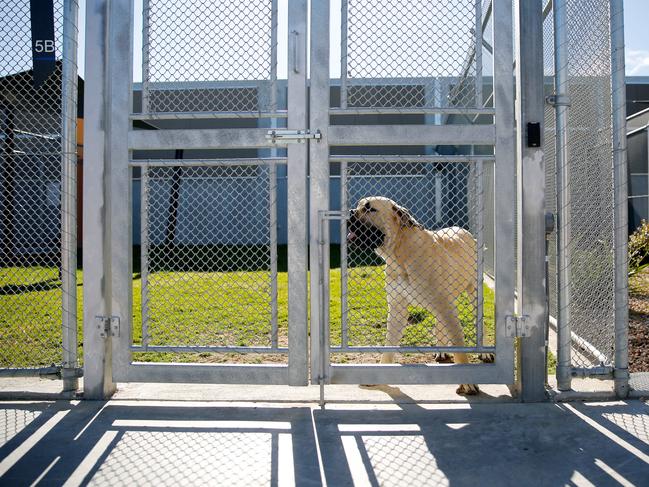
Australia, with its strict border laws, requires pets entering Australia to be on a direct flight landing in Melbourne and then transported to Mickleham. At the outset of the pandemic lockdown Qantas and Virgin Australia had limited flights from LA, but they landed in Brisbane so did not cater for pets. United Airlines is the only airline flying directly from the US to Australia daily, but flights stop in Sydney.
Mr Williams said he has 50 clients with pets ready to book their pets on the Melbourne flights.
He hopes more flights will be announced.
With limits on how many pets per flight - and cats and dogs having to undergo vet and blood tests that take months to complete - some kind of certainty on future US-Australia flight schedules would alleviate the stress and hurdles families are facing.
Families have had to make the difficult choice of leaving their pets in the US and are not sure when they will see them again.
“We have clients with a cat sitting in a Houston vet’s boarding kennel waiting to come,” Mr Williams said.
One of Mr Williams’ employees agreed to look after an Australian family’s dog at her home while they waited for a flight to open up.
The new Qantas London-Melbourne flights are on May 13, 15, 20, 22, 27, 29 and June 3 and 5.
QANTAS DELAYS ULTRA-LONG HAUL FLIGHT PLANS
Qantas will delay plans to launch a series of ultra-long haul flights following its decision to further suspend domestic and trans-Tasman travel.
The airline’s Project Sunrise, which hopes to see 19-and-a-half-hour direct flights from London and New York to Sydney, was due to launch in about three years’ time.
Qantas CEO Alan Joyce said the project had been put on hold, and multibillion-dollar plans to order up to 12 Airbus A350s to service the routes had been shelved.
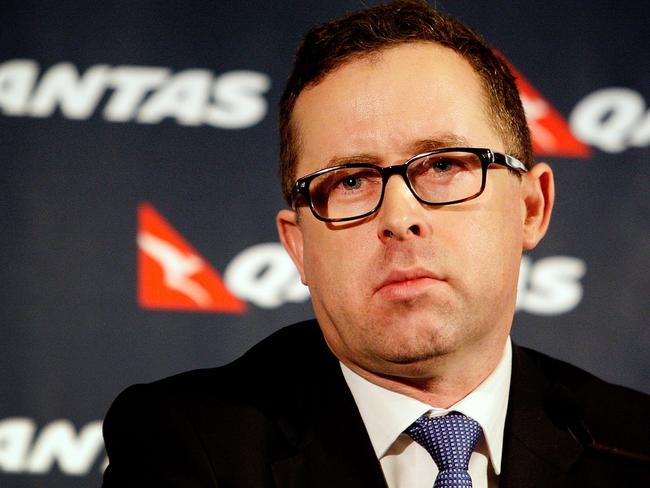
“We do think there is a huge potential for Project Sunrise but the time is not right now, given the impact that COVID-19 has had on world travel,” Mr Joyce told Executive Traveller.
“But we do think there’s still a good business case for it, and a good opportunity.”
Mr Joyce added “we certainly won’t be ordering aircraft for that (Project Sunrise) this year.”
It comes after Qantas announced it would extend the suspension of most of its domestic and trans-Tasman flights until the end of June, and for international flights until the end of July.
But the airline said some capacity could be added back within a week if domestic and trans-Tasman restrictions eased earlier.
“The initial easing of government restrictions suggests some domestic travel may start to return before the end of July, though initial demand levels are hard to predict,” Qantas said.
Also, the airline is allowing customers whose flights are cancelled because of the coronavirus crisis to split travel credits across future bookings, and is giving them more time to use the credit.
Qantas said the stand-down of two-thirds of its 30,000-member workforce would be extended until at least the end of June.
Australia’s flag carrier said it had secured further debt funding of $550 million against three of its wholly-owned Boeing 787-9 aircraft following the $1.05 billion raised in March against seven of its 787-9s.
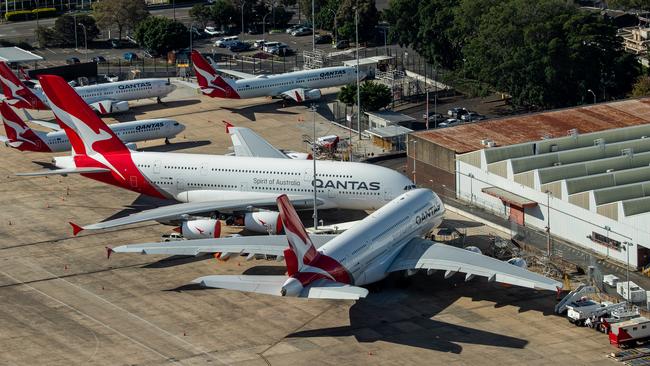
“The group has sufficient liquidity to respond to a range of recovery scenarios, including one where the current trading conditions persist until at least December 2021,” Qantas said.
It could raise more funds against its $2.7 billion in unencumbered aircraft assets, Qantas said.
By the end of June, the airline expects to reach a cash burn rate of $40 million a week, which is $2.08 billion a year.
It has $3.5 billion in short-term liquidity, including $1 billion in an undrawn debt facility.
“Our cash balance shows that we’re in a very strong position, which under the circumstances we absolutely have to be,” Qantas chief executive Alan Joyce said.
“We don’t know how long domestic and international travel restrictions will last or what demand will look like as they’re gradually lifted.”
With the possible exception of New Zealand, it could take years for international travel demand to return to what it was, Mr Joyce said.
The airline is currently operating about five per cent of its pre-crisis domestic network and one per cent of its international network. The airline would have to review the size of its fleet, network and capital expenditure, Mr Joyce said, adding “our commitment to serve communities across Australia will not change”.
Qantas said it had closed out all its hedged positions for its fuel needs in early April, incurring losses but avoiding the precipitous falls in oil prices that occurred in the second half of the month.
The airline had hedged all its fuel needs for the year as a means to protect the airline from fluctuations in the price of jet fuel, which delivered significant benefits in the first half but resulted in losses as the pandemic caused a drop in oil prices.
At 1.36pm AEST, Qantas shares were up 1.7 per cent to $3.62.
EMIRATES REVIEWS AUSSIE AIRPORT OPERATIONS
An airport services subsidiary of Dubai’s Emirates Group says it will review its operations in Australia after being left out of the federal government’s scheme to save jobs.
The dnata business includes ground handling and catering services and retail and hospitality.
Companies owned by foreign governments have been excluded from Australia’s JobKeeper scheme that provides funds to businesses to pay workers.
Emirates Group, which also counts the Emirates airline among its assets, is owned by Dubai’s state fund.
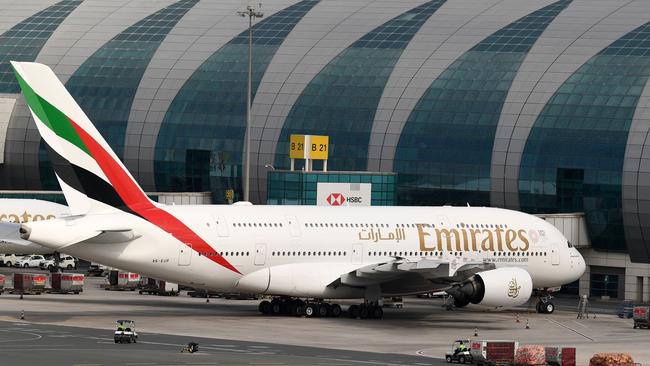
“As a result, we are ... forced to review medium, and long-term viability of dnata’s various Australian businesses,” a spokesperson for dnata said in an email, confirming an earlier report in the Financial Times.
An Australian government spokesperson could not be immediately reached for comment.
Dnata warned its exclusion from the scheme had put 4500 jobs at risk and given an unfair advantage to its competitors that it said had not been barred from accessing the program.
“The application of the scheme was critical to the company’s Australian employees, as it mean that we could reinstate previously stood down workers, and keep the rest of the workforce employed,” the spokesman said.
QANTAS BACKFLIPS ON CREDIT POLICY
Airline giant Qantas has bowed to public pressure and revised its controversial policy regarding customer credits.
The popular flight carrier has come under fire in recent months by disgruntled customers who had their travel plans disrupted by the coronavirus pandemic, but today the airline is announcing a significant change to credit vouchers.
In recent months customers getting credits had been told by the airline they could only use the credit for a future booking of the same value or more.
So for instance if a customer received a $2000 flight credit for a return flight from Sydney to Melbourne, this amount could only be used down the track for another booking of the same value of $2000 or a higher amount.
This angered many customers.
But a Qantas spokesman said they had listened to customer complaints and have decided to change their policy.
“We have listened to feedback from customers and are making changes to our back end systems so these vouchers can be used multiple times,” he said.
“This provides more flexibility in how these vouchers are used.
“A customer could use the travel credit from a cancelled flight to London to instead go on several interstate holidays over the next 18 months or so.
“We will be keen to stimulate demand once the coronavirus passes and travel restrictions are eased which means lots of low airfares out customers can use their travel credits on.”
Customers who have been booked on future Qantas and Jetstar booking impacted by COVID-19 will be able to split travel credit across multiple bookings.
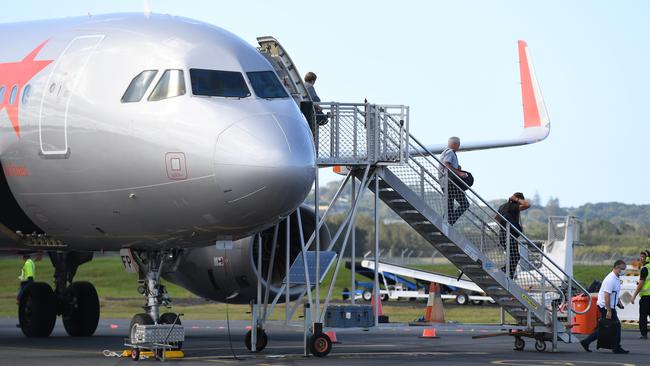
This will be available on both airlines’ websites from June.
Credit vouchers are also valid until 31 December, 2021.
Customers who made bookings using a third-party travel agent or website have been advised to contact them directly.
The airline has also extended flight cancellations for June and July.
Qantas is operating around 5 per cent of its pre-crisis domestic passenger network and only 1 per cent of its international network.
The current standdown of employees will be extended until at least the end of June.
Meanwhile rival website Virgin Australia remains in voluntary administration and is looking for bidders to take over the company.
Bids for the airline are due on Friday, May 15.
For Virgin Australia customers who hold a valid ticket for travel up to September 30 2020 they are able to change their booking or request a travel credit without incurring a change or cancellation fee.
And just last week troubled travel company Flight Centre finally backed down on charging customers exorbitant cancellation fees on bookings they could no longer take.
It comes after customers were left furious they were initially being charged $300 per person to cancel their international bookings in order to get a full refund.
Law firm Slater and Gordon has also launched a class action against major airlines, travel agents and companies and believes customers should be entitled to cash refunds and not credits.
